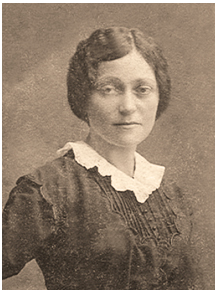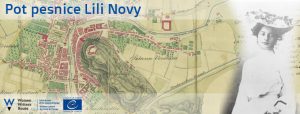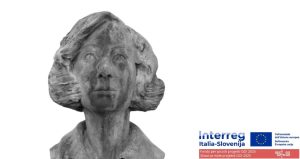Isidora Sekulić (1877 – 1958) was born in Vojvodina, as a citizen of the former Austro – Hungarian Empire. She studied in Budapest, and graduated in mathematics and natural sciences. She worked as a teacher of mathematics in Pančevo, Šabac, Skoplje and Belgrade. Due to her recurring health problems (she suffered from tuberculosis), she often took sick leave. In 1910, she became a Serbian citizen. She travelled a lot: Norway, Sweden, Germany, Great Britan, France, Italy. She married a Polish doctor, Emil Stremnicki, who died shortly after their marriage (1914). Isidora never remarried, and had no children. She spoke and translated from German, English, French and Russian. She also translated from the Norwegian and Swedish language. She obtained her PhD in Germany. She was a member of a number of women’s organizations, their representative at numerous conventions, and was elected Board Secretary at the International Council of Women, held in Christiania, in 1920. She was also one of the founders of the Teachers’ Association for Secondary Vocational Schooling. After WWII, she became a Board member of the AFŽ (Yugoslavian anti-fascist women’s front). She socialized with many renowned intellectuals of her time, and was a proud member of various associations. She was famous for the weekly gathering organized in her house, where literature, music, theatre, painting, etc. was discussed…
She wrote prose, short stories, novels, literary critisms, essays, travelogues, discussions, notes, and translated from different languages. She published her first piece of writing, “Šta su Srbinu gusle?”, in a school magazine Školski list (1983). She was the first Serbian woman to be elected member – correspondent of the Serbian Royal Academy of Science (1939), a member of the Serbian Academy of Science and Arts (1950), honored president of the Serbian PEN Center (1931), vise – president of the Association of Writers of Yugoslovia, and president of the Association of Writers of Serbia. Her works were published in various magazines: Branik, Srpski književni glasnik, Brankovo kolo, Delo, Savremenik (Zagreb), Naša književnost, Letopis matice srpske, Nova Evropa, Domaćica, Ženski pokret, Misao…





